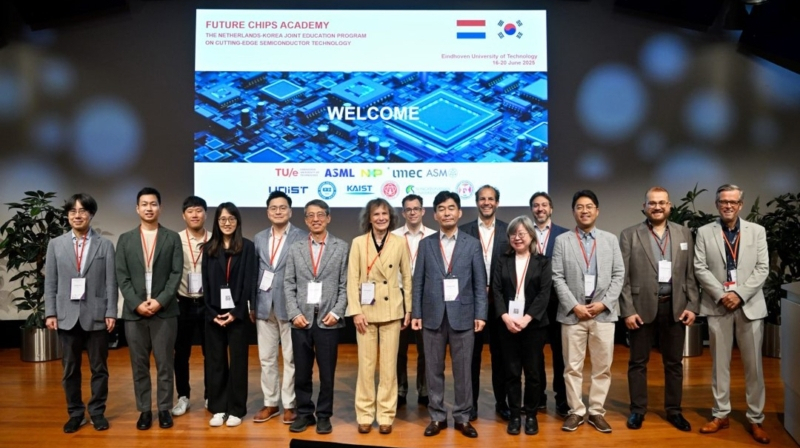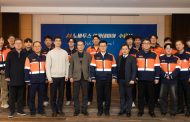UNIST is pleased to announce the successful participation of its Graduate School of Semiconductor Materials and Devices Engineering students in the ‘2025 Future Chips Academy: The Netherlands-Korea Joint Education Program on Cutting-Edge Semiconductor Technology,’ held from June 16 to 20 in Eindhoven, Netherlands.
Dedicated to cultivating global talent in the semiconductor industry, this program was organized collaboratively by Eindhoven University of Technology (TU/e), ASML, NXP, and other leading companies in the field. Supported by the Ministry of Trade, Industry and Energy and the Korea Institute for Advancement of Technology (KIAT), the academy brought together over 60 master’s and doctoral students from prominent Korean institutions including UNIST, KAIST, POSTECH, Sungkyunkwan University, Hanyang University, and Kyungpook National University.
During the event, participants engaged in discussions on emerging technological trends and international collaboration strategies. UNIST dispatched a team of seven students who visited world-renowned semiconductor companies such as ASML, IMEC, and NXP, gaining firsthand experience of cutting-edge technologies. The students also participated in practical manufacturing sessions and specialized lectures, deepening their understanding of current industry standards and future technological directions.
On February 20, a panel discussion titled ‘Beyond Moore’s Law‘ was held, featuring Professor Byeongjo Kim from the Graduate School of Semiconductor Materials and Devices Engineering at UNIST, who explored next-generation semiconductor technologies. The discussion covered topics such as advanced device integration, brain-inspired computing, and future prospects of semiconductor innovation. Esteemed panelists, including Professors Gyu Man Kim (Kyungpook National University), Changhwan Choi (Hanyang University), and Aida Todri-Sanial (TU/e), shared insights from their respective fields.
The event culminated in a team project challenge, where students collaborated over a week to solve problems related to brain-inspired and in-memory computing, fostering practical problem-solving skills and teamwork.
Professor Byeongjo Kim commented, “This academy provided our students with the opportunity to learn from world-leading semiconductor experts and to establish invaluable international networks. UNIST remains committed to expanding global industry-academic exchanges to strengthen our semiconductor research capabilities.”






![[2026 Matriculation] UNIST Welcomes Class of 2030!](https://news.unist.ac.kr/wp-content/uploads/2026/02/사진-박종래-UNIST-총장이-2026년-입학식사를-전하고-있다-2-190x122.jpg)
![[2026 UNIST Commencement] UNIST Confers Degrees to 883 Graduates](https://news.unist.ac.kr/wp-content/uploads/2026/02/사진-2026학년도-UNIST-졸업생들이-학사모를-위로-던지며-졸업을-축하하고-있다-1-800x413-190x122.jpg)




